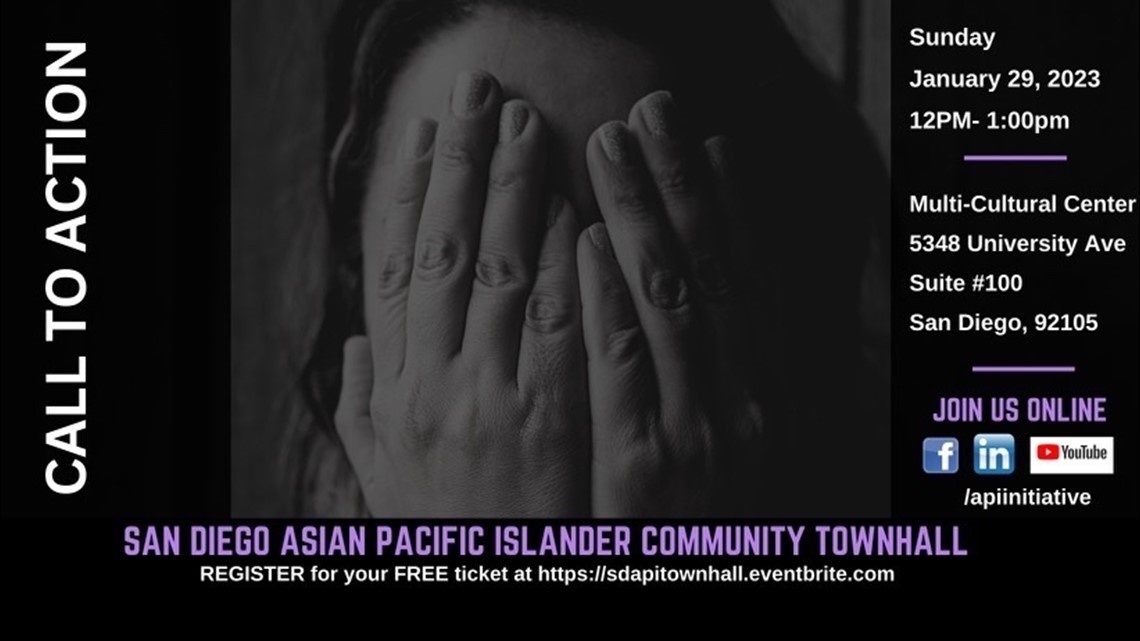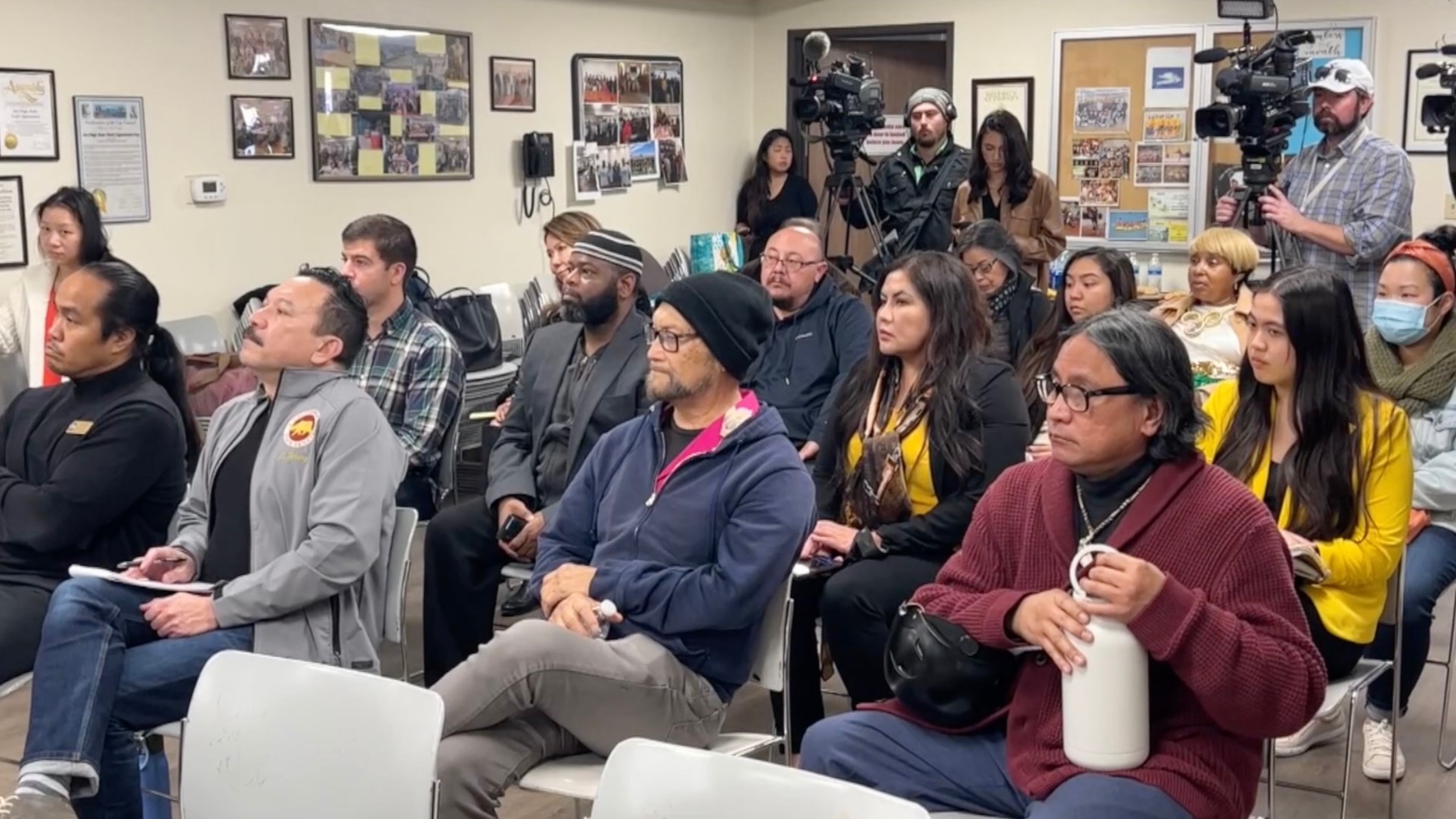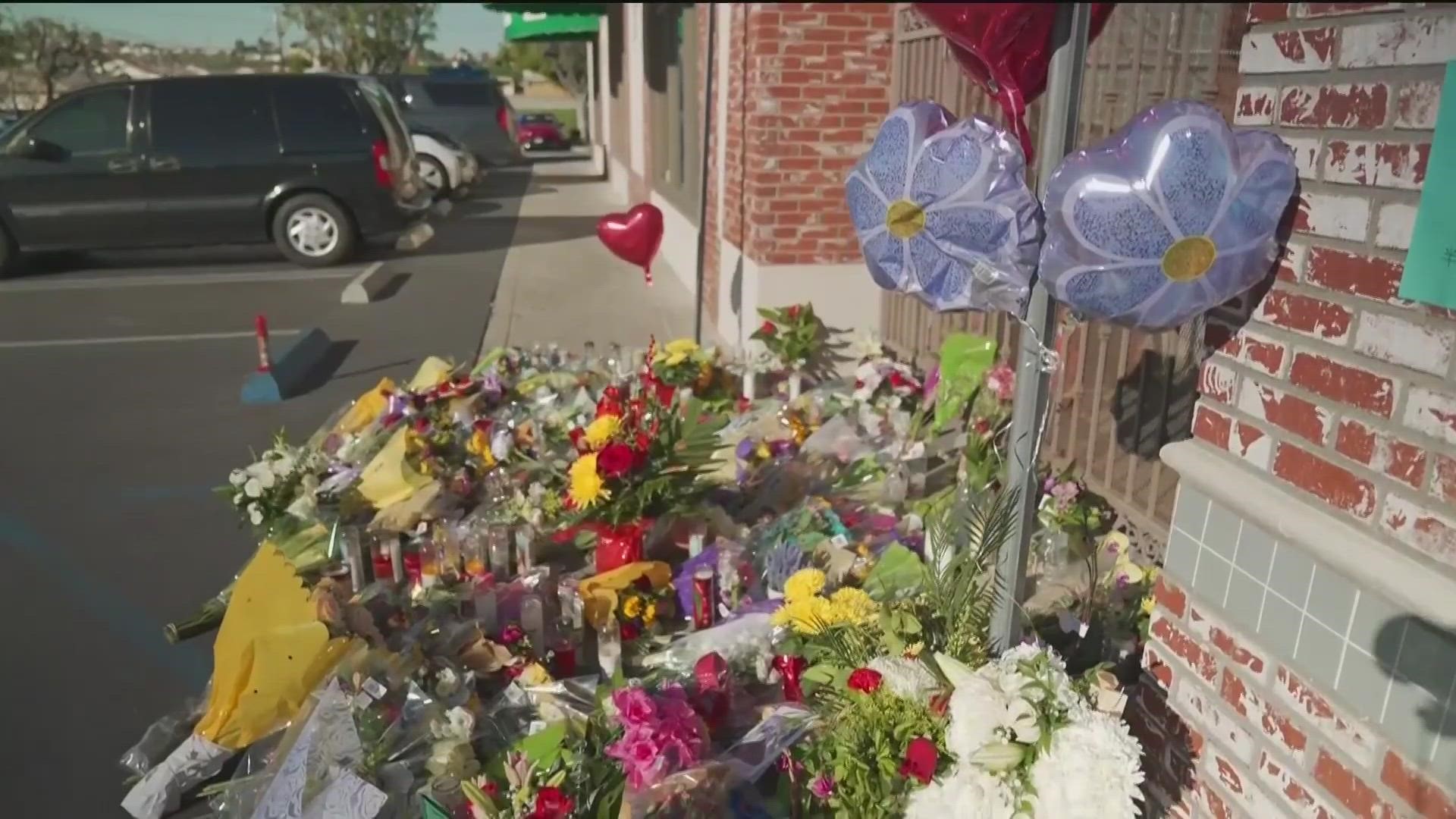SAN DIEGO — Over the last week, three mass shootings occurred in California; in two, the suspected gunmen are Asian. The recent violence in California devastated many Asian Americans who culturally don't share their grief easily.
Sunday, January 29, 12 p.m. AAPI Town Hall
This town hall was held by the Asian Pacific Islander Initiative to address the recurring trauma of mass shootings, domestic violence, hate crimes, and the lack of culturally sensitive support for victims, family members, and community continue to compound. The goal was to create an action plan for policy changes to better serve the San Diego API community.
In Person: Sunday’s town hall began at noon inside the San Diego Police Department Multicultural Center in City Heights at 5348 University Ave, Suite 100, 92105.
Elected officials expected to participate:
- CA State Assemblymember Dr. Akilah Weber
- San Diego Mayor Todd Gloria
- San Diego Council President Sean Elo-Rivera
- Jason Weiez, Office of Senator pro-Tem Toni Atkins
- Andrew Harvey, Office of Chairperson Supervisor Nora Vargas
- Max Ellorin, Deputy Chief of Staff, Office of Council President pro-Tem Monica Montgomery Steppe
More information: San Diego API Community Town Hall - A Call to Action.


A call to action
“We don't even have time to breathe; we don't have time to breathe and exhale. And we're just trying to be there for each other right now,” said Kirin Macapugay.
Kirin Macapugay serves on the California Commission on Asian and Pacific Islander American Affairs and is planning the town hall with AAPI community leader JoAnn Fields. They say grieving can be difficult in their communities. They said it's known as the model minority myth.
“This myth that we're doing good, when we're not, our community is struggling quite a bit,” said Macapugay. “We don't even have time to breathe; we don't have time to breathe and exhale. And we're just trying to be there for each other right now.”
“We have to have an action plan, not just a conversation, and I look forward to what is possible for making a bigger impact and positive change,” said Fields, API Initiative Public Relations Director.
Part of that change is helping people know there is no shame in asking for help.
Sharing grief, seeking help
The recent violence in California has devastated many Asian Americans who culturally don't share their grief easily.
Many feel too ashamed and proud to seek mental health help, which can lead to events like this and make it tough to cope.
“It’s an Asian male and an elderly person, right? It’s already difficult enough being an Asian American to talk about mental health. These are two different parts of that special demographic that are further isolated and removed and have barriers to seeking mental health,” said Doctor Richard Moon, Kaiser Permanente Health San Diego.
He is a doctor of internal medicine and says not only does he see the challenges in Asian American patients seeking mental health care but also in his Korean American culture.
“We don't recognize it, or we're told not to talk about it as a model minority. And so, it comes out sideways in different ways as irritability, anger, depression, or worse,” said Moon.
“If you're out there with trauma or anxiety or depression, don't, don't feel like you have to go through it by yourself. We see you. We see the heaviness and the weight, and the burden. You don't have to do this by yourself,” said Moon.
Sunday, January 29, AAPI Town Hall
“We don't even have time to breathe; we don't have time to breathe and exhale. And we're just trying to be there for each other right now,” said Kirin Macapugay.
Kirin Macapugay serves on the California Commission on Asian and Pacific Islander American Affairs and is planning the town hall with AAPI community leader JoAnn Fields. They say grieving can be difficult in their communities. They said it's known as the model minority myth.
“This myth that we're doing good, when we're not, our community is struggling quite a bit,” said Macapugay. “We don't even have time to breathe; we don't have time to breathe and exhale. And we're just trying to be there for each other right now.”
The town hall will include mental health resources and a call to action from officials, including more targeted programs and a response from people with knowledgeable cultural sensitivity.
“We have to have an action plan, not just a conversation, and I look forward to what is possible for making a bigger impact and positive change,” said Fields, API Initiative Public Relations Director.
Part of that change is helping people know there is no shame in asking for help.
“If you're out there with trauma or anxiety or depression, don't, don't feel like you have to go through it by yourself. We see you. We see the heaviness and the weight, and the burden. You don't have to do this by yourself,” said Moon.


